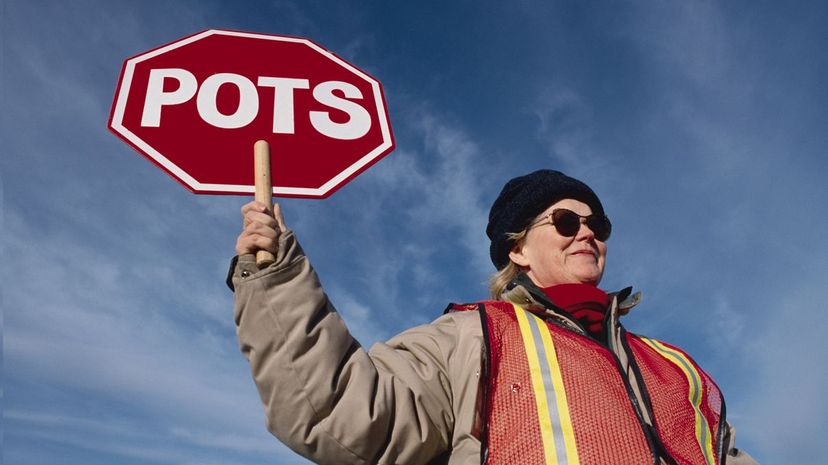
About This Quiz
You've seen them before: Blocks of upside-down, backward and mixed-up text topped with a headline like, "Only geniuses can read this!" or "You'll be smarter than your friends if you can understand this!" The truth is, it really does have something to do with your brain, but maybe not exactly what you thought.
Have you ever seen a child write his or her name backward? Psychologists and people smarter than us who study this sort of thing sometimes refer to it as "mirror writing." In fact, one pretty famous polymath (that's someone skilled in a wide range of disciplines) known as Leonardo da Vinci used to engage in mirror writing intentionally. For the rest of us plebeians, writing backward is probably something we'd do just for fun or to craft a message on a car window for someone outside, perhaps.Â
But let's go back to our brains. Some scientists believe that when we learn or recognize a word, it is stored in our brains correctly in one hemisphere, while a mirror opposite of that word is stored in another hemisphere. So, the word "quiz" could appear as both "quiz" and "ziuq" in separate parts of your noggin. Pretty cool, right?
Now, let's see what you've got stored in that big brain of yours! This quiz is a collection of backward words that need to be matched to their correctly spelled opposites. Unscramble the word and then figure out which "opposite" pairs perfectly with it. We'll consider you a regular htimsdrow if you can nail this one!

To be "absent" means that a person is not in a particular place at a given time, such as being away from school. The opposite of "absent" is "present," which means you are in a particular place at the appointed time.

In the 1931 black-and-white classic, "Frankenstein," the popular phrase, "It's alive!" is used to acknowledge the creature's movement. The opposite of "alive" is, of course, "dead."

Someone who is in your corner is considered an "ally." The United States, as a country, has allies in other countries. The opposite of an ally, however, would be an enemy (if they were your friend, they might be a frenemy).
Advertisement

We don't want to make judgments here, but there's no denying that something the opposite of "beautiful" would be considered "ugly." That reminds us of a childhood chant, "U-G-L-Y, you ain't got no alibi ...," which we - of course - never chanted.

When you "borrow" something, you ask for someone to give you an item. Both parties intend for the item to be returned. To "steal," on the other hand, means to take something that doesn't belong to you without permission. Don't do that!

Individuals who are held against their will, such as prisoners of war, would be considered "captive." Individuals who may come and go as they please, though, would be regarded as "free."
Advertisement

Things that are "common" are considered widely available. Think about something you might want. If it's not "common," then it's probably "rare," which means it's much harder to find.
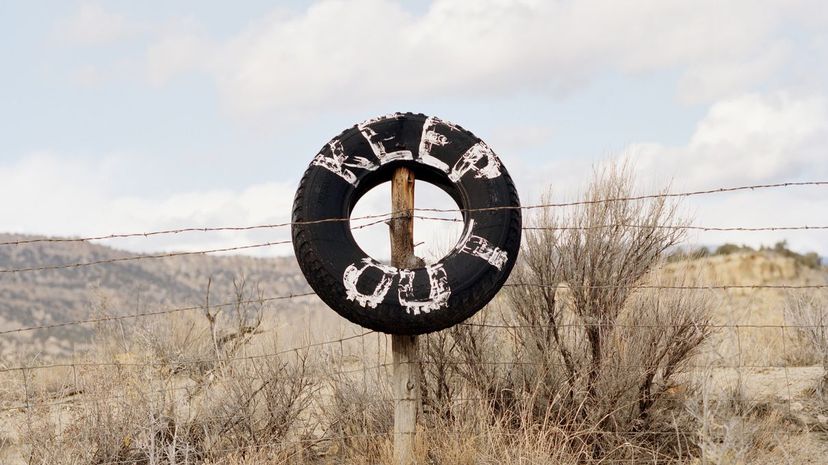
You're probably familiar with locales throughout the world that would be considered "dangerous" for tourists to visit, so scratch those from your list. Places that are "safe" to visit would be better choices!

Nobody likes a "dim" bulb (still talking about Christmas lights here). Ideally, all of your Christmas lights are "bright," letting you celebrate the magic of the season in a joyous and merry way.
Advertisement

Some people see a glass as half "empty," but others see it as half "full." This is a common expression to help decipher between the optimists (your half "full" people) and the pessimists (your half "empty" people). Which one are you?
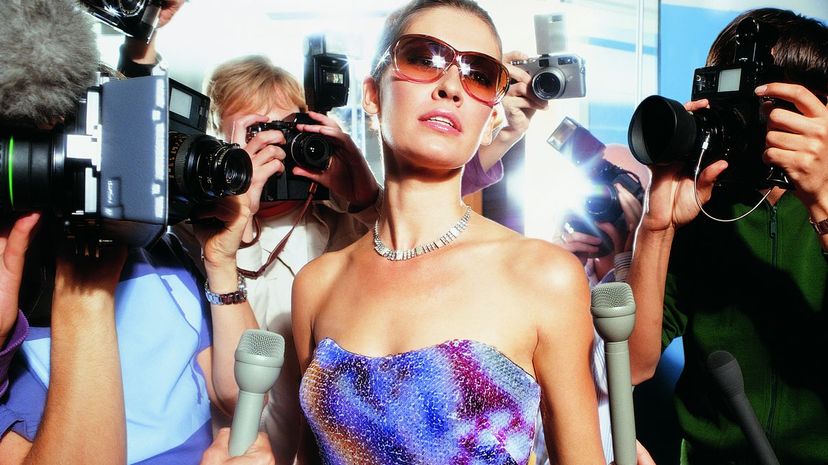
People who are "famous" are usually celebrities, athletes, politicians and others in the public eye. The rest of us are "unknown," at least to the public at large. Our friends and family still know us, though!

Nobody wants "stale" bread for a sandwich, but you could make a mean batch of croutons with it. "Fresh" bread would be the opposite, both of the word in this question and for the best sandwiches!
Advertisement

Clothes sometimes "shrink" in the dryer as a result of fibers constricting after being wet. Of course, you don't want your clothes to "grow" in the dryer, either, or they might be too big to wear!

Whenever you're dealing with a baby or a child, you want to be "gentle" rather than "rough." The word "gentle" could mean mild or moderate, while something that is "rough" is coarse or harsh.

The word "hinder" means that something is causing a delay or interruption. On the other side of this word game is the word "help," which means to assist or facilitate. If you're trying to diet, you need all the "help" you can get!
Advertisement

The winter months, maybe because we're all inside more, can be difficult for staying "healthy." We often find ourselves "ill," with minor coughs and colds or, in more severe cases, with the flu or other ailments.

Information that is deemed "important" is critical for something or someone. Information that is "trivial," though, is insignificant - you know, like 90% of social media.

To "separate" individuals means to put them in different locations, but if you want to "join" individuals, you would put them in the same location. It's OK; we liked to talk in school ourselves. (Sorry, teachers!)
Advertisement

If you have "ignorance," then you probably lack "knowledge," since the two are opposites. Many sources define "ignorance" as the absence of knowledge; knowledge, on the other hand, is considered learning or understanding.

It's true! Some people are born "leaders," while others are content to be "followers." And there's nothing inherently wrong with either! Life is a series of give-and-take moments where you're sometimes one and sometimes the other!

Let's face it: Kids are much better at keeping a "messy" room than a "neat" one. Luckily, most of us grow out of it by the time we're grown-ups with our own place ... most of us that is!
Advertisement

"Similar" and "opposite" are, well, opposites! Things that are similar are things that are alike, such as two peas in a pod. Things that are opposite are quite different, indeed, like peas and chocolate bars.

We need more manners in society today, don't you agree? A world of "polite," rather than "rude" people certainly makes the day-to-day grind easier to deal with. People who are rude may have an appointment with the karma bus!
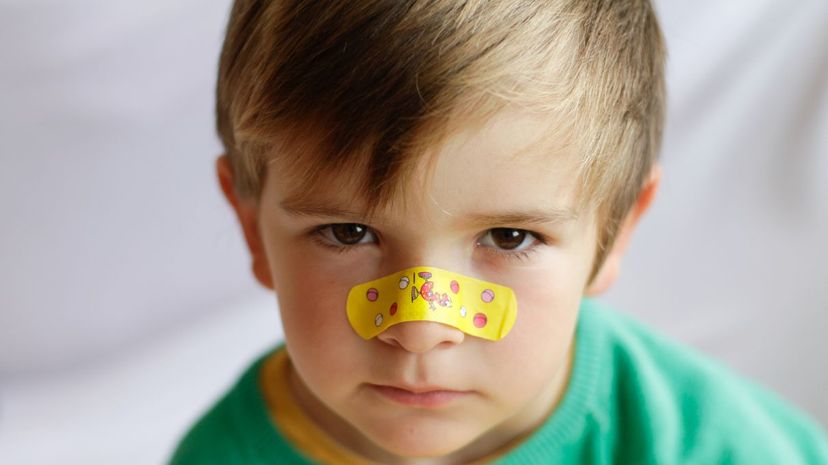
Someone who breaks his or her nose might experience it becoming "crooked," or not "straight," afterward. Of course, scars are your story so, whatever you do, tell a good one. And, hey, cosmetic surgery is always an option!
Advertisement

There are a few things in life that are "permanent," and tattoos are dominant in that category. Unless you want to have very expensive and time-consuming laser removal done, consider a "temporary" tattoo instead.
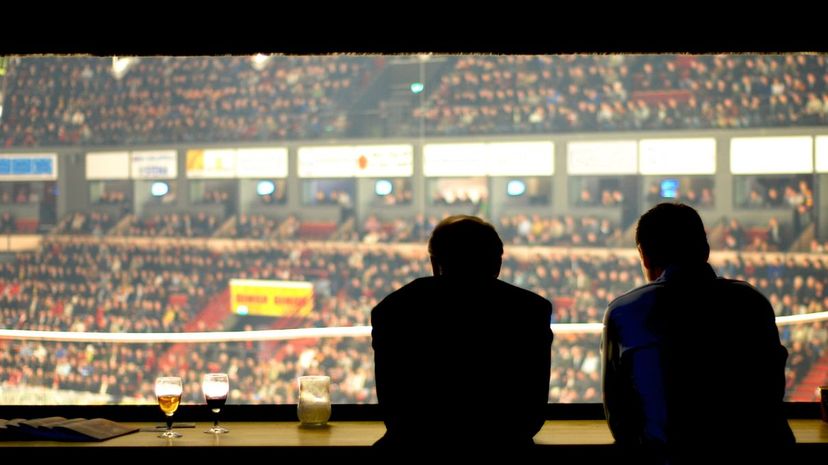
If you're a fan of any sports team, you know this to be true. There's nothing like the thrill of "victory," or winning, except the agony of "defeat," or losing.

Boy, couldn't we all use a little more "peace" in the world? "Peace" is harmony and freedom from discord. "War," its opposite, is a state of conflict or hostility between two or more entities.
Advertisement

When you're "together," you're in a group with at least one other person in the same location. When you're "apart," you're no longer in the same location, but you're separated by time or distance.
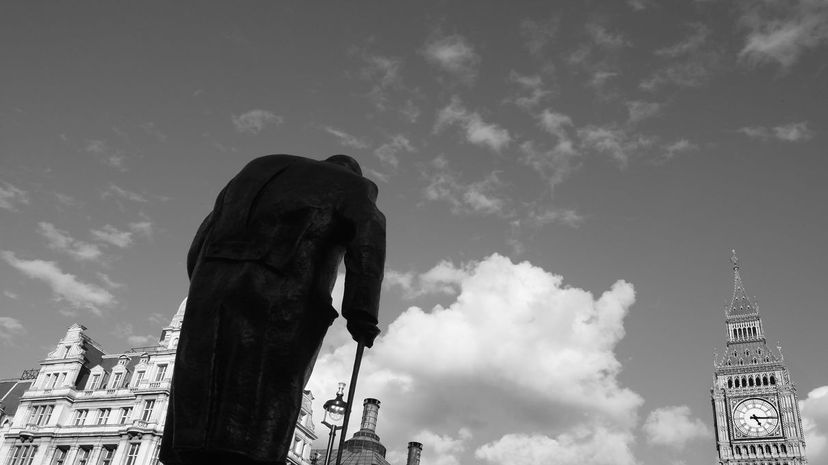
The quote by Churchill goes, "Success is not final; failure is not fatal," and continues, "It is the courage to continue that counts." Churchill would know, having brought peace to Europe during World War II.

Showing up to work five days a week for many is "compulsory," especially if you like to get a paycheck. When something is not required, it is considered "voluntary," such as giving your time at an animal shelter.
Advertisement

If you work in the government, you are - surprise! - a "public" figure. Once you retire from your government post, however, you go back to being a "private" citizen, sort of. Ask former President Barack Obama about that.

If you "always" do something, it means you do something every time without exception. If you "never" do something, it means you don't do it. For the record, the nursery rhyme says that both Jack and Jill went up the hill.

When you're "industrious," your employer recognizes that you're a hard worker. If your employer considers you "lazy," though, you're probably going to get fired. A "lazy" worker is someone who is averse to working.
Advertisement

Giving "praise" to someone means you recognize their efforts with your admiration or approval. Casting "blame," the opposite of "praise," means you find fault with what someone did.

Many people can't decide between an "artificial" (or fake) tree at Christmas and a "natural" (or real) one. We love the smell of a natural tree, but an artificial one is so much easier to maintain!